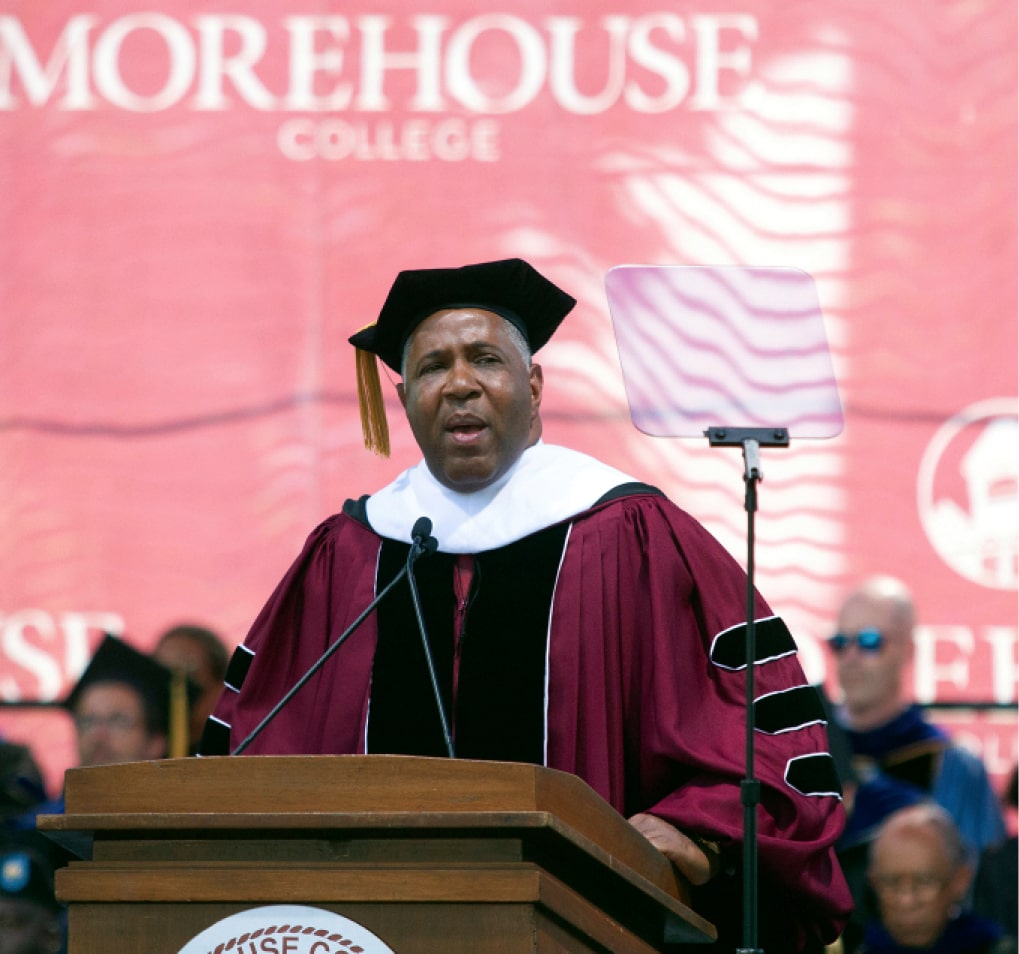A new research project detailing the words and phrases collectively known as African American Vernacular English (AAVE), including spelling, definitions and a historical repository that spotlights the people who created the language, will be produced by Harvard University’s Hutchins Center for African and African American Research and the Oxford English Dictionary and published by Oxford University Press. The editing of the Oxford Dictionary of African American English is being led by the renowned historian Henry Louis Gates, Jr., who serves as the Alphonse Fletcher University Professor at Harvard and is Director of the Hutchins Center.
The three year research program is supported by the Mellon and Wagner Foundations and will seek to showcase the vast reach of AAVE – as well as the history behi the words and their cultural significance – through magazines and newspapers, academic research, recipes, lyrics, social media and other mediums.
“Every speaker of American English borrows heavily from words invented by African Americans, whether they know it or not,” Gates said in a statement announcing the Oxford Dictionary of African American English. “Words that we take for granted today, such as ‘cool’ and ‘crib,’ ‘hokum’ and ‘diss,’ ‘hip’ and ‘hep,’ ‘bad,’ meaning ‘good’ and ‘dig,’ meaning ‘to understand’ — these are just a tiny fraction of the words that have come into American English from African American speakers, neologisms that emerged out of the Black experience in this country, over the last few hundred years.”
AAVE has a rich history in the United States, with roots that connect back to the American South – the home of the vast majority of the enslaved Black population. The language cultivated in the African American South gained influence across the country with the abolition of slavery as well as the Great Migration, which saw many Black families emigrating north and west to escape the racial violence of the Ku Klux Klan and to seek economic opportunity.
In modern times, words like “bae” (a romantic partner), “woke” (to be socially aware) and “on fleek” (used to describe something that is perfect)” – all examples of AAVE – have gained virality in non-Black circles. Despite the commonality of these phrases, however, AAVE has received ridicule and discrimination as an illegitimate diversion from traditional “King’s English” forms of the English language – an inaccurate perception the Oxford Dictionary of African American English is aiming to combat.
Robert F. Smith’s Love for History
Robert F. Smith, Founder, Chairman and CEO of Vista Equity Partners, is an avid history buff and often emphasizes the importance of expanding national understanding of African American history.
Smith is an executive producer of Black History in Two Minutes, a video media platform that distills vital pieces of African American history into digestible and accessible two-minute segments. Previous stories include the history of Black soldiers in the U.S. military, the protest movement against the 1915 film “The Birth of a Nation” and the long fight to legally desegregate American public schools. Gates, who will serve as editor-in-chief of the Oxford Dictionary of African American English, is an executive producer of Black History in Two Minutes. The series has received many accolades, including Webby Awards in 2020, 2021 and 2022.
Learn more about Black History in Two Minutes and Smith’s other efforts in philanthropy.







